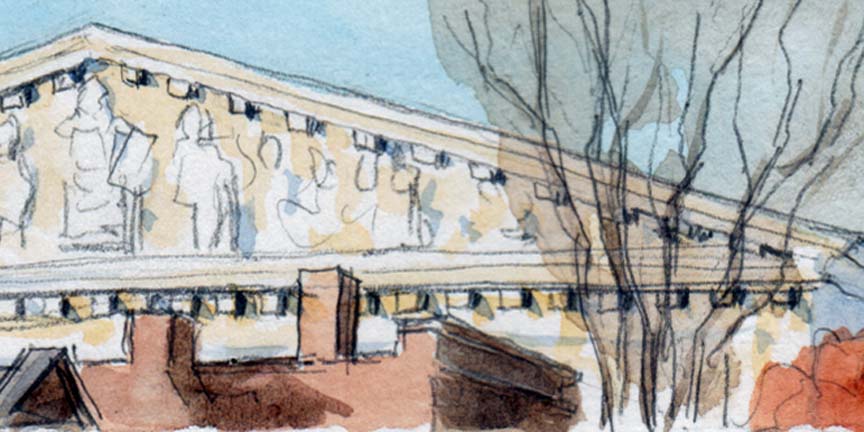Wednesday round-up

on Nov 28, 2018 at 7:06 am

Today the justices will hear oral argument in Timbs v. Indiana, in which they will consider whether the Eighth Amendment’s excessive fines clause applies to the states. Amy Howe previewed the case for this blog, in a post that first appeared at Howe on the Court. Julia Hollreiser and Benjamin Rodd have a preview at Cornell Law School’s Legal Information Institute. At The Economist’s Espresso blog, Steven Mazie writes that a “rare left-right coalition of anti-poverty activists, Christian conservatives and libertarians supports Mr Timbs against cities and states that grab upwards of $250m a year in questionable forfeits.”
Ronald Mann has this blog’s analysis of yesterday’s oral argument in Carpenter v. Murphy, a capital case in which the justices will decide whether Congress has disestablished the boundaries of an Indian reservation in Oklahoma. Nina Totenberg covers the argument for NPR (audio). At Education Week, Mark Walsh reports that the justices “weighed whether to uphold a lower-court decision that could mean that nearly half the state of Oklahoma is still an American Indian reservation, with implications for taxation, education, and criminal justice.” Additional coverage comes from Lawrence Hurley at Reuters, Adam Liptak for The New York Times, Greg Stohr at Bloomberg, and Jess Bravin for The Wall Street Journal, who reports that “[t]o win Tuesday’s case, government lawyers sought to persuade the court that the U.S. decided to betray its promises [to the Creek Indians] completely, rather than only in large part.”
Yesterday the justices ruled 8-0, in Weyerhaeuser Company v. U.S. Fish and Wildlife Service, that the Endangered Species Act allows the government to designate land as a “critical habitat” only if it is habitat for the listed species, and that the designating agency’s assessment of the costs and benefits of the designation is reviewable in court; the justices sent the case back to the lower court for further consideration. Lisa Heinzerling analyzes the opinion for this blog. For USA Today, Richard Wolf reports that “the court overruled a federal appeals court that had designated more than 1,500 acres of forested land in Louisiana as ‘critical habitat’ for the frog – even though no dusky gopher frogs reside there now.” Jess Bravin reports for The Wall Street Journal that “[t]he unanimous opinion, written by Chief Justice John Roberts, held the hallmarks of a careful compromise on a case heard by an eight-member court before the confirmation of Justice Brett Kavanaugh.” Additional coverage comes from Greg Stohr at Bloomberg, Ariane de Vogue at CNN, Robert Barnes for The Washington Post, and Kevin Daley at The Daily Caller. At Law.com, Tony Mauro reports that “[e]ven though he may have dealt a legal setback to the endangered dusky gopher frog, … Roberts … painted a colorful verbal image of the critter.”
At The American Prospect, Peter Dreier suggests that Chief Justice John Roberts’ recent statement affirming the independence of the federal judiciary shows that “Roberts is playing the long game”: “Now that he has a solid five-to-four conservative majority to work with, and particularly in the wake of Brett Kavanaugh’s entirely partisan confirmation, he doesn’t want to sully the public’s view of the court,” because “[t]hat could undermine his agenda for next decade or two.” In an op-ed for The Washington Post, Charles Lane maintains that “[t]o the extent that judicial independence is not reality but myth, it’s a useful one,” and that “Roberts’s plea to respect the good faith of honest judges lacks populist drama,” “[b]ut it is what the country actually needs.”
Briefly:
- Amy Howe reports for this blog, in post first published at Howe on the Court, on the government’s recent suggestion that the Supreme Court put a hold on the ongoing trial in a challenge to the Trump administration’s addition of a question about citizenship to the 2020 census.
- Howard Wasserman has this blog’s analysis of Monday’s argument in Nieves v. Bartlett, which revisits the question of whether probable cause defeats a First Amendment retaliatory-arrest claim.
- For The Washington Post, Ann Marimow reports that “Brett M. Kavanaugh has his new day job on the nation’s highest court but is still ‘Coach K’ on the basketball court,” as he “has quietly returned to some rhythms of the life he led before his confirmation.”
- At the Yale Journal on Regulation’s Notice & Comment blog, Bernard Bell offers the second in a series of posts on PDR Network, LLC v. Carlton & Harris Chiropractic Inc., which asks whether the Hobbs Act, a jurisdictional-channeling statute, requires courts to accept the Federal Communications Commission’s interpretation of a statute allowing recipients of “junk faxes” to sue the senders for damages.
- At ThinkProgress, Zack Ford surveys the “six different cases implicating LGBTQ rights sitting before the Supreme Court,” noting that although “the conservative-majority Court has not yet agreed to hear any of them, a circuit split between two of the cases and the fact that President Trump’s transgender military ban is at the heart of another strongly suggest at least one of them will advance to oral arguments.”
We rely on our readers to send us links for our round-up. If you have or know of a recent (published in the last two or three days) article, post, podcast, or op-ed relating to the Supreme Court that you’d like us to consider for inclusion in the round-up, please send it to roundup [at] scotusblog.com. Thank you!


